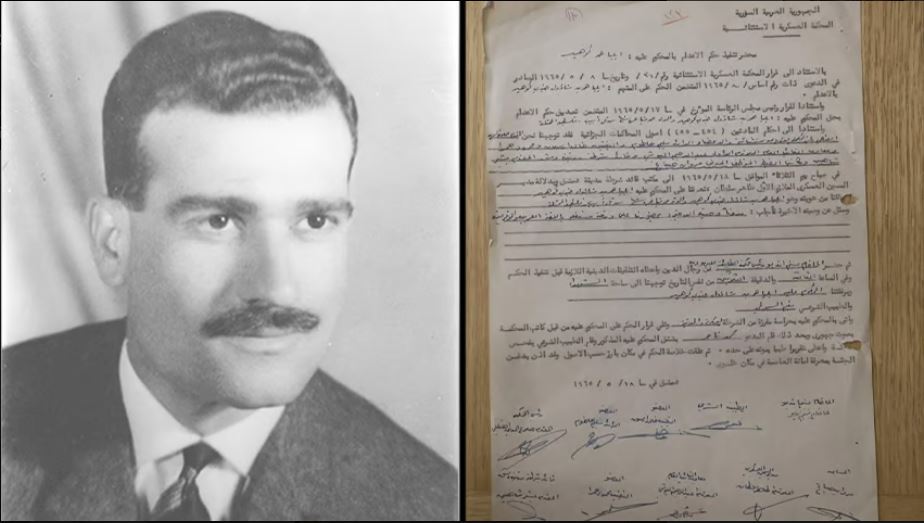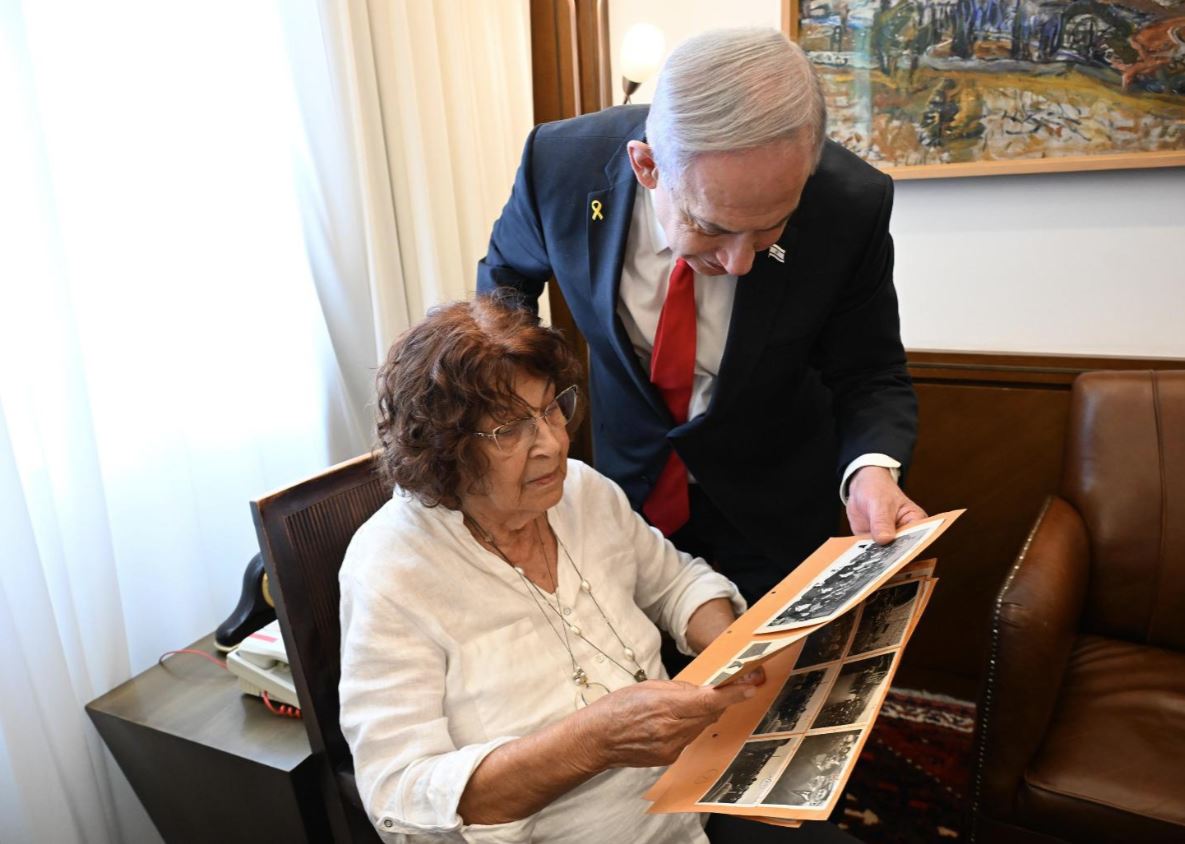It is not usual for a spy to continue to captivate the world sixty years after his death. However, the Egyptian-born Mossad agent Eli Cohen has achieved this mythical status.
His story, now part of the stuff of legends in Israel, continues to fascinate and enthrall even his enemies years after his painful death, which was turned into a public spectacle by Syria.
A public hanging in Damascus would deter future Mossad agents, the Syrian regime thought. On the contrary, Cohen’s fortitude in death inspired a whole new generation of Mossad agents and made him a national hero in Israel.
Such is the hold of his story on the modern mind that nearly six decades after his death, Netflix turned his life into a TV series –The Spy—which, unsurprisingly, became a worldwide hit.
The Mossad’s present-day fabled reputation is in part due to Cohen’s fascinating exploits in an enemy country, long before spycraft became a professional service.
His legacy lives on in the current map of the Middle East. The Golan Heights, a strategic piece of land between Israel, Lebanon, and Syria, which allows its occupiers to dominate the area on all sides, was occupied by the Israeli Defense Forces (IDF) in the 1967 War, primarily due to Cohen’s work.
The strategic pull of Cohen’s life and story is not lost on the new Syrian President, Ahmed al-Sharaa, who, notwithstanding his ideological differences with the Jewish state, has returned the personal belongings of the long-dead spy to Israel in a bid to ease Israeli hostility to the new regime.

A Reuters report said that a Syrian security source, an adviser to Syrian President Ahmed al-Sharaa, and a person familiar with backchannel talks between the countries said the archive of material was in fact offered to Israel as an indirect gesture by Sharaa as he seeks to cool tensions and build Trump’s confidence.
It is indeed a testament to the legendary status Cohen’s story has attained in Israel that sixty years after his death, a hostile regime in Syria thinks that by returning a few letters, pictures, and forged passports of that long-dead spy, they can mend their relationship with Tel Aviv.
One would be hard-pressed to think of any other spy in the modern world who has attained this cult status, that some of his personal belongings can help chart a new path in the region’s history and give a new direction to the geopolitics of the volatile West Asian region.
Earlier this week, Israeli Prime Minister Benjamin Netanyahu met with Nadia Cohen, the widow of Eli Cohen, to present her with documents and materials belonging to Eli Cohen, which Netanyahu claimed were brought back in a covert Mossad operation.
“Eli Cohen is a national hero and a symbol of determination. We will continue to work tirelessly to bring our missing and captives back home. May his memory be blessed,” Netanyahu wrote on the social media site X.

The items include documents, recordings, photos, and items collected by Syrian intelligence after his capture in January 1965, letters in his own handwriting to his family in Israel, photographs of his activity during his operational mission in Syria, and personal objects that were taken from his home after his capture.
However, in keeping with Cohen’s mysterious life, even the story of his remains returning to Israel was not without twists and turns.
While Reuters’ report claimed that Cohen’s belongings were returned with the approval of the Syrian President, Netanyahu claimed that Mossad brought them back in a covert operation. Now, Cohen’s widow Nadia has said that she believes Mossad’s version that the documents were brought back to Israel by Mossad in a covert operation.
Irrespective of who is telling the truth, the saga shows the hold of Cohen’s story on modern Israeli psyche 60 years after his death.
The Accidental Spy
Cohen was born in an Egyptian Jewish family in 1924, before the birth of the Israeli state. In his youth, Cohen got involved with the Zionist movement and helped Israeli intelligence evacuate many Egyptian Jewish families.
He himself emigrated to Israel in 1956, following the Suez Canal crisis when the Egyptian government became suspicious of his activities. In Israel, Cohen Married Nadia and fathered three children.
In 1957, Cohen joined the IDF and worked with military intelligence. However, he wanted to work with Mossad, but his application was repeatedly rejected.
As luck would have it, Mossad Director-General Meir Amit was looking for a new intelligence officer to infiltrate the Syrian government, and came across Cohen’s file.
After six months of intensive training, Cohen was selected to be a katsa or field agent.
The Making Of A New Identity
Cohen was then given a false identity as a Syrian businessman who was returning to the country after living in Argentina. To establish his cover, Cohen moved to Buenos Aires in 1961. There, he cultivated friendships with the Syrian expat community.
In 1962, Cohen moved to Damascus. Next year, the Ba’ath party seized power in Syria. In Damascus, Cohen built relationships with high-ranking Syrian politicians, military officials, influential public figures, and the diplomatic community.
He threw parties at his house, inviting influential people in Syrian politics. Within a few months, Cohen became deeply embedded in the Syrian political elite, so much so that he was on the short list for deputy minister of defense right before his arrest.
He provided extensive intelligence data for the Israeli Army between 1962 and 1965.
The Eucalyptus Tree That Won Israel The Golan Heights
Arguably, Cohen’s most famous exploit was a combination of ingenuity and out-of-the-box thinking. At that time, the strategic Golan Heights were under Syrian occupation. Israeli settlements were living under constant Syrian fire.
In 1963, Cohen was able to tour the Golan Heights through his access to the Syrian defense circles. There, he observed Syrian fortifications. He feigned sympathy for the soldiers exposed to the sun and planted Eucalyptus trees at every position to provide shade to Syrian soldiers.
During the six-day war in 1967, the IDF is said to have used the trees as targeting markers, which enabled Israel to capture the Golan Heights in two days. Israel controls the Golan Heights to this day.
The Arrest And Public Hanging
However, two years before that war, Cohen was arrested by the Syrian intelligence. They used Soviet made tracking equipment to intercept his radio transmissions to Israel.
Cohen was found guilty of espionage by a military tribunal and sentenced to death under martial law. He was repeatedly interrogated and tortured.
Israel initiated an international campaign for clemency to commute his death sentence. Many international leaders appealed to Syria. However, Cohen was hanged publicly in Damascus on May 18, 1965.

According to some accounts, his public hanging was also filmed. Cohen’s body was never returned to Israel.
While Israel has long sought to recover his body for reburial at home, the return of his archive held for 60 years by Syrian intelligence was hailed by Mossad as “an achievement of the highest moral order.”
Netanyahu said the recovered archive “will educate generations, and expresses our tireless commitment to returning all of our missing persons, prisoners of war and hostages.”
However, the search for Eli Cohen’s final resting place goes on.
- Sumit Ahlawat has over a decade of experience in news media. He has worked with Press Trust of India, Times Now, Zee News, Economic Times, and Microsoft News. He holds a Master’s Degree in International Media and Modern History from the University of Sheffield, UK.
- VIEWS PERSONAL OF THE AUTHOR.
- He can be reached at ahlawat.sumit85 (at) gmail.com




